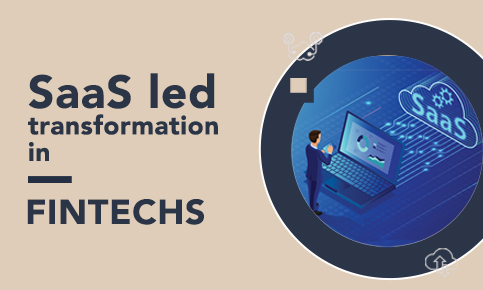Digitization has transformed the way businesses function today. Organizations are investing in technology for efficacy and optimization of internal processes to build business models with enhanced customer experience. Today, technology is all over and changing the dynamicity of various internal and external processes by integrating various bits and processes on one platform. Product development and services companies have been at the forefront of driving this digital transformation by introducing Software as a Service (SaaS) based offerings.
Software as a Service, also known as Web-based Software, On-demand Software or Hosted Software is a way of delivering applications digitally- as a service. It comes as a respite to organizations that invested heavily in professionals and in-house software earlier. Today, with the help of SaaS services, instead of installing and maintaining software, one can simply access it through the internet, freeing themselves from complex software and hardware management since the applications are run on the SaaS provider’s servers and hence, entirely managed by them.
The SaaS framework has enabled several blooming Fintechs to hover from launch to profitability in a short span by offering them the liberty to build a complete business model on it. In doing so, Fintechs have drastically increased their scalability while pulling down operational expenditure. Also, it has allowed Fintech start-ups to outflank their competitors by simply adopting the SaaS model for online transactions.
The new age Fintechs, who aim for market dominance, compete to build the best possible solutions for the industry and adopting cloud based framework has been a game-changer for them. Adopting SaaS has helped Fintechs understand volatile business cycles and demand patterns while simultaneously making a paradigm shift from a Capex to Opex costing model. This change in the costing model has allowed Fintechs to augment their growth by investing more in operational activities like data analysis, machine learning, artificial intelligence, etc.
Big data analysis, Machine Learning, Artificial Intelligence has enabled Fintechs to bring a tinge of freshness and innovation to the table where the preferences of the customers they are dealing with are highly dynamic. SaaS has enabled Fintechs to launch customized and configurable interfaces to match customer preferences while improving operational control as well.
While questions of quality of software providers, certifications, process, etc., stopped financial institutions from adopting SaaS in the past, today, it offers them benefits such as data security, cost optimization, deftness, scalability and configurability. Awareness has been a major driving force behind this shift. Cost effective pricing models allowed banks to reduce their CAPEX substantially which paved way for early stage adoption of SaaS. Furthermore, it also enhances compliance, a significant fragment in the financial world, by automating recurrent aspects thereby reducing irregularities.
SaaS has helped financial institutions in prioritizing, reducing and realigning their expenditure. While resistance is a thing of past, at present, SaaS is widely used and heavily relied upon by financial institutions.
